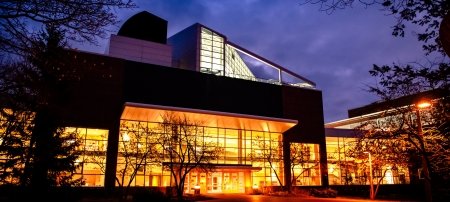The National Service Graduate Tuition Rate (NSGTR) provides reduced tuition for military service personnel, Peace Corps, AmeriCorps and VISTA volunteers.
Active duty, honorably discharged or retired U.S. military service personnel, as well as Peace Corps, AmeriCorps and Volunteers in Service to America (VISTA) volunteers, are eligible for reduced tuition for graduate school at Michigan Technological University. The National Service Graduate Tuition Rate (NSGTR) was approved at the May 4, 2018 Board of Trustees meeting. The Board approved a reduction of $377 for students pursuing graduate study in engineering and computer science, and a $332 reduction for students in all other areas of graduate study at Michigan Tech.
Jackie Huntoon, provost and senior vice president for academic affairs says, “Michigan Tech recognizes that individuals who contribute service to society through their participation in the military service, Peace Corps, AmeriCorps or VISTA have put the good of society and their country above their own interests for an extended period of time. By offering these individuals a reduced tuition rate, Michigan Tech hopes to make graduate education more affordable and accessible to students. Michigan Tech's focus on STEM and related fields, coupled with the University's strong job placement rates, make us an attractive option for people who want to continue giving back to society throughout their careers, by developing solutions to challenging problems.”
The NSGTR replaces the National Service Graduate Fellowship or NSFG.
Jacque Smith, director of graduate enrollment services, says the Board’s approval indicates “a higher level of commitment” to Michigan Tech students with a history of service to our country. He says, “It comes to dollars and cents; we value the diversity these students add to our graduate student population. These students’ experiences enhance campus culture and classroom dynamics.”
Students who have served, students who have earned
Sarah Washko and Robert Zupko are both graduate students with prior service experience who diversify Michigan Tech’s graduate school culture through their engagement on campus and in the classroom. Both students have benefitted from the NSGF and will continue to receive reduced tuition through the NSGTR. These are their stories.
Washko is an environmental engineering master’s student. Before arriving at Michigan Tech, she earned her BS in geology from the University of Montana, and also served as a volunteer for the Big Sky Watershed Corps for the Montana AmeriCorps. Because of her time in AmeriCorps, Washko received the NSGF.
She says, “The fellowship has greatly helped me afford school. It is also a nice way to reward hard-working students for their service. The fellowship feels like a pat on the back or a handshake thanking me for my service. I gave up a whole year to serve a community. While the experience was rewarding in itself, it is certainly nice to be acknowledged for my service.”
Zupko served four years in the U.S. Air Force as a computer programmer. After his service, he moved to New England for work, where he completed his bachelor’s (Rivier College) and master’s (Harvard) degrees by taking night classes. After getting laid off from a technology company in Ann Arbor, Michigan, a friend forwarded him information about Michigan Tech’s Computational Science and Engineering PhD Program. While looking into the program, Zupko realized he could afford the tuition because of the NSGF.
He says, “The NSGF did play a role in helping to bring me to Michigan Tech. Since I was applying to Tech after the closing date for most external grants and fellowships and internal funding from Tech, it helped the budget work out so that coming back to school was really even possible in the first place. It was really critical my first year.”
There’s no way to adequately repay those who have unselfishly given to serve others through the military, AmeriCorps or VISTA. Perhaps Michigan Tech’s NSGTR program is a start.
Michigan Technological University is an R1 public research university founded in 1885 in Houghton, and is home to nearly 7,500 students from more than 60 countries around the world. Consistently ranked among the best universities in the country for return on investment, Michigan's flagship technological university offers more than 185 undergraduate and graduate degree programs in science and technology, engineering, computing, forestry, business, health professions, humanities, mathematics, social sciences, and the arts. The rural campus is situated just miles from Lake Superior in Michigan's Upper Peninsula, offering year-round opportunities for outdoor adventure.





Comments